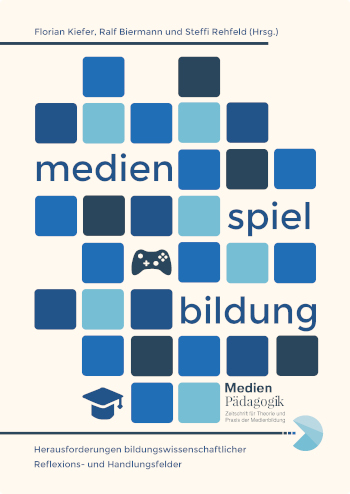Abstract
The framework for the professional work of Johannes Fromme at the University of Bielefeld was the concept for leisure education in the post-industrial society (Nahrstedt). Therefore the analysis of social structures and dynamics as well as the development of appropriate educational strategies within these contexts were important for the leisure theory. It was the typical thinking we had at that time and it was productive in different fields of application: adventure playgrounds, media education projects or self-organized leisure networks in residential areas. The proposed article tries to update these referential social theories and takes into account, for instance, the theory of the sociologist Andreas Reckwitz (The Society of Singularities) about the individualization of popular culture. The aim is a critical analysis of new class structures in the «experience economy» (Pine and Gilmore) with upcoming creative elites, and the text will focus on experience-oriented lifestyles with new digital opportunities and the ongoing pluralization. Leisure education has to take into account these new developments and this way it will evolve appropriate new approaches for many leisure fields. The article will target the modernization of museums, adventure pools and theme parks. Data from explorative studies at the Hochschule Bremen will be presented and discussed. The development of leisure education towards an experience-oriented education within a broad spectrum of leisure settings is a possible outcome.
References
Brinkmann, Dieter, Renate Freericks, und Heike Theile. 2016. Erlebnisbad 2030 : Analyse der Entwicklungen und Trends der Freizeit- und Erlebnisbäder. Bremen: Institut für Freizeitwissenschaft und Kulturarbeit e.V. https://doi.org/10.26092/ELIB/144.
Brinkmann, Dieter, Renate Freericks, und Heike Theile. 2018. Wissenswelten 3.0: eine explorative Untersuchung von Entwicklungsmöglichkeiten im Bereich der wissenschaftsorientierten Ausstellungs- und Bildungshäuser – mit besonderem Fokus auf Trends der Digitalisierung und einem Wandel des Lernverhaltens. Bremen: Institut für Freizeitwissenschaft und Kulturarbeit e.V. https://doi.org/10.26092/elib/145.
Brinkmann, Dieter, Renate Freericks, und Heike Theile. 2019. «Freizeit- und Themenparks im Umbruch: Berufsfeldorientierte Fallstudien zu den Herausforderungen im 21. Jahrhundert». Bremen: Hochschule Bremen. https://media.suub.uni-bremen.de/handle/elib/3559.
Brinkmann, Dieter, Renate Freericks, und Denise Wulf. 2017. Didaktische Modelle für außerschulische Lernorte. Bremen: Institut für Freizeitwissenschaft und Kulturarbeit e.V. https://doi.org/10.26092/elib/143.
Fromme, Johannes, und Renate Freericks. 1997. «Freizeit, Bildung und die Ästhetisierung des Alltagslebens». In Freizeit zwischen Ethik und Ästhetik: Herausforderungen für die Pädagogik, Politik und Ökonomie, herausgegeben von Johannes Fromme und Norbert Meder, 79–94. Jugend, Erziehung, Gesellschaft. Neuwied: Luchterhand.
Fromme, Johannes, und Norbert Meder, Hrsg. 1997. Freizeit zwischen Ethik und Ästhetik: Herausforderungen für die Pädagogik, Politik und Ökonomie. Jugend, Erziehung, Gesellschaft. Neuwied: Luchterhand.
Gebhardt, Winfried. 2015. «Feste, Feiern und Events. Die etwas andere Freizeit». In Handbuch Freizeitsoziologie, herausgegeben von Renate Freericks und Dieter Brinkmann, 415–29. Wiesbaden: VS Verlag für Sozialwissenschaften. https://doi.org/10.1007/978-3-658-01520-6_16.
Nahrstedt, Wolfgang. 1974. Freizeitpädagogik in der nachindustriellen Gesellschaft. Kritische Texte zur Sozialarbeit und Sozialpädagogik. Neuwied: Luchterhand.
Nahrstedt, Wolfgang. 1990. Leben in freier Zeit: Grundlagen und Aufgaben der Freizeitpädagogik. Erziehungswissenschaft. Darmstadt: Wissenschaftliche Buchgesellschaft.
Nahrstedt, Wolfgang, Dieter Brinkmann, Heike Theile, und Guido Röcken. 2002. Lernort Erlebniswelt. Neue Formen informeller Bildung in der Wissensgesellschaft. Bd. 20. IFKA-Schriftenreihe. Bremen: Institut für Freizeitwissenschaft und Kulturarbeit e.V. https://doi.org/10.26092/ELIB/253.
Nahrstedt, Wolfgang, Jürgen Sandmann, Hans Lefeber, Brigitte Lentz, und Egon Schewe, Hrsg. 1982. Der Freizeitpädagoge Freizeitberatung – Animation – Freizeitadministration. Opladen: Westdeutscher Verlag. https://doi.org/10.1007/978-3-663-01844-5.
Opaschowski, Horst W. 1996. Pädagogik der freien Lebenszeit. 3. Aufl. Opladen: Leske + Budrich.
Pine, B. Joseph, und James H. Gilmore. 1999. The experience economy: work is theatre & every business a stage. Boston: Harvard Business School Press.
Reckwitz, Andreas. 2017. Die Gesellschaft der Singularitäten: zum Strukturwandel der Moderne. 1. Aufl. Frankfurt am Main: Suhrkamp.
Reckwitz, Andreas. 2019. Das Ende der Illusionen: Politik, Ökonomie und Kultur in der Spätmoderne. 1. Aufl. Edition Suhrkamp 2735. Berlin: Suhrkamp.
Schulze, Gerhard. 1992. Die Erlebnisgesellschaft: Kultursoziologie der Gegenwart. 2. Aufl. Frankfurt am Main: Campus.

